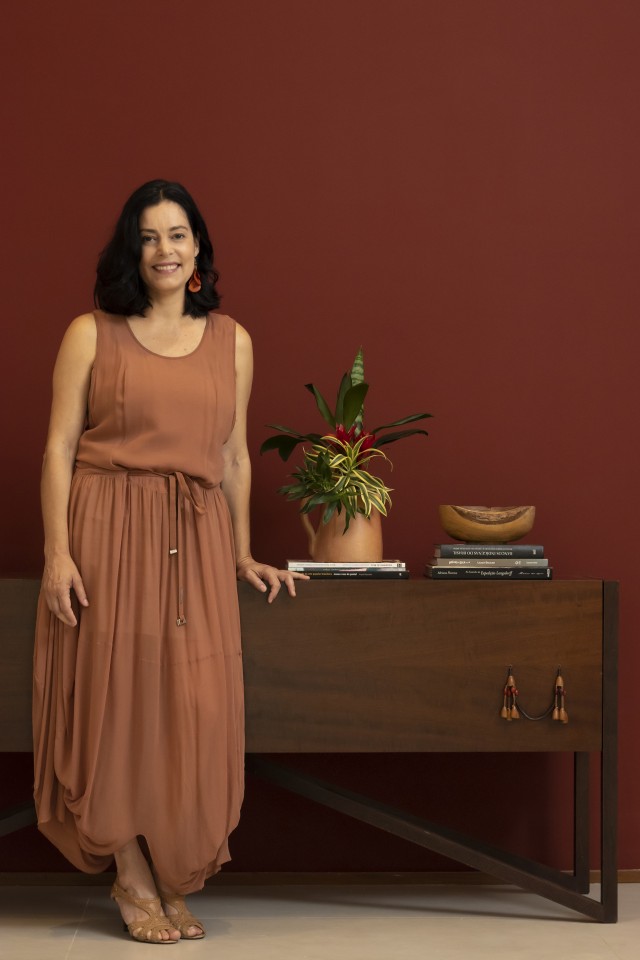Her design epitomizes the modern heritage aesthetics of Brazil, where the handicraft traditions of indigenous people blend with those of European and African descendants
(Isstories Editorial):- Sao Paulo , Sao Paulo Jan 29, 2024 (Issuewire.com) – Founded by the designer Maria Fernanda Paes de Barros, Yankatu is a brand that mixes art, design, and craftsmanship in furniture pieces. Based on respect for artisanal and cultural traditions, her work has been recognized around the world for rescuing and bringing visibility to the importance of integrating secular traditions into the contemporary universe.
More on Isstories:
- Let’s Visit America on This Summer with US VISA Online
- Time to Visit America with the Help of USA Online Visa
- Get a Visa for New Zealand at One Click Away with New Zealand Visa
- Get a Visa for New Zealand Effortlessly with New Zealand Visa
- Get a Visa for New Zealand Effortlessly from New Zealand Visa
All over the world, design is getting closer and closer to handicrafts, bringing new uses and applications to ancient techniques that have spanned generations. In Brazil, a country with continental dimensions and around 8.5 million artisans, looking at handicrafts helps us understand part of its social and cultural characteristics and the formation of its identity. Among the many important names that have emerged in Brazilian design in the last decade, Maria Fernanda Paes de Barros has attracted international attention for her dedication to telling part of her country’s story, integrating design with ancestral techniques that are genuinely Brazilian.
“Throughout the country, we will find craft communities working with different techniques with influences that were born here, as in the case of indigenous production, or from cultures coming from different regions of the world, as in the case of European and African immigration. The most interesting thing is to realize that the beauty of Brazil’s cultural heritage lies precisely in the coexistence of this knowledge which, even with difficulties, resists and renews itself over time,” adds the designer.
After more than 20 years dedicated to interior design, she began researching Brazilian craft traditions, seeking to incorporate them into her creations, producing pieces that combine art, delicacy, inspiration, and memories. In the projects she has realized or taken part in, the aim is always to present the craft through a new lens, proposing a new use or application of the craft technique in an integral way within a design piece. “It’s an attempt to show the artisan – and also the market – that a hammock can become a swing, that the same technique the artisan uses to make a ceramic flower can become a lamp, that a chair can have crochet or straw elements. All of this while maintaining the artisan’s identity and encouraging them to expand their creative portfolio,” she says.
In her experiences with Yankatu, the brand she founded in 2014, Maria Fernanda has had the chance to partner with Brazilian artisans from Minas Gerais, Pará, Bahia, Paraíba, Rio Grande do Norte, and the Xingu Indigenous Territory in Mato Grosso. In all of these communities, her creation generates sensitive collections that allow us to clearly see the integration between the aesthetics, function, and poetics of each community behind the piece. The only material that appears in almost all of her work is different species of Brazilian solid wood, which varies in colour, shape, and function depending on the project.
Some of her work that has gained greater prominence – both nationally and internationally – is linked to her predilection and admiration for indigenous cultures and their influences. In the Xingu Collection, for example, developed in partnership with artisans from the Mehinaku ethnic group, all the pieces are inspired by the aesthetics and daily life of the village. The Beiju Table refers to the pots in which they process manioc flour, a central element in their diet. The Oca Cabinet, as well as being inspired by their ancestral architecture, has straw mats made exclusively by the women of the village. The Kaupüna Swing, which was born out of Maria Fernanda’s desire to value the work done by the women of the village, is the result of the first collaboration between the men and women of the village who, until then, had never produced pieces together. The wood was always worked by the men and the buriti hammocks by the women.
The indigenous roots of different ethnic groups also appear in the collections Filhos da Terra, made with Pataxós artisans from Bahia, Kwasawá, made with indigenous people from the Borari ethnic group in Pará, and even in the pieces in the collections Alma Raíz, Carimbó, Permita-se, and Des-Vestir-Se, made by riverine artisans, also from the state of Pará, who although they are not affiliated with any specific ethnic group, their influences appear in their customs, food, aesthetics and craft techniques.
Even outside Brazil, her eye for indigenous mythology brought her into contact with Mexican artisan Sérgio Hernandez during an exchange in 2022 at Design Week Mexico. Working with shredded paper, a technique that has Chinese origins and arrived in Mexico through Spanish influence, they produced the Camino Del Alma Sculptural lamp, whose shape is reminiscent of Quetzalcóatl, a mythical figure from Aztec culture. “Even in this short period, I’ve noticed that the handicrafts produced in both countries have many similarities, like the mix between indigenous people and colonisers, the great diversity of techniques, and, above all, the respect that these artisans have for previous generations,” she reveals.
Having her work recognised by art and design curators from various regions, Maria Fernanda has already taken part in 16 exhibitions throughout Brazil, as well as another 9 international events in cities such as Geneva, Milan, New York, Paris, Mexico City e Tel Aviv, where – since March 2023 – she is participating as the only Brazilian designer and artist on Tel Aviv Bienalle of Crafts and Design, in Israel. With her research governed by sensitivity and respecting the rhythm dictated by time, she has stood out as one of the leading names in the sector in Brazil, always with the proposal to include the rich craftsmanship of her country in contemporary works and objects.
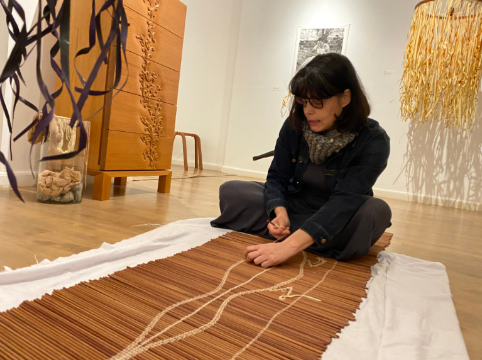
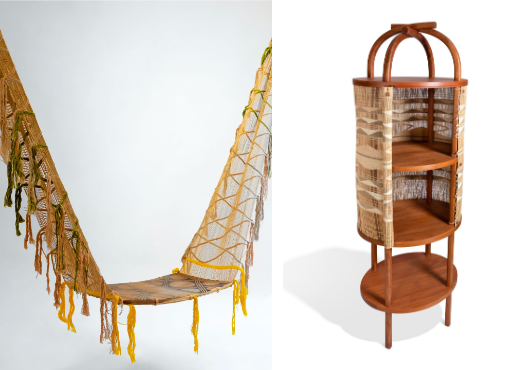
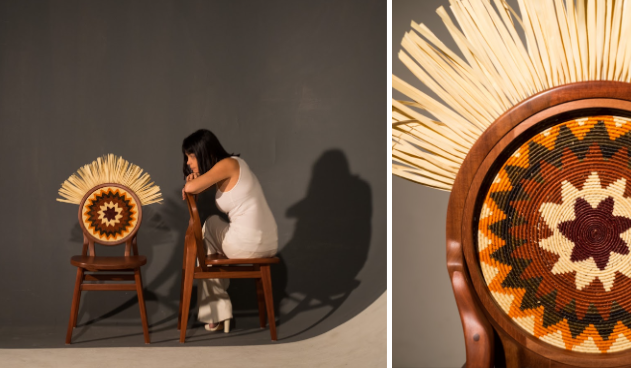
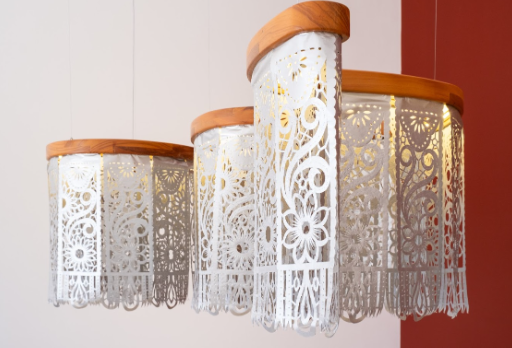
This article was originally published by IssueWire. Read the original article here.

